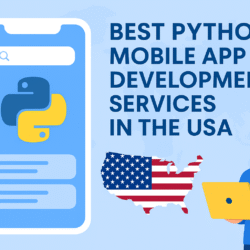The sports betting industry is evolving at lightning speed. Traditional wagering on football, basketball, or horse racing is now being complemented — and in some markets, overtaken — by eSports and virtual sports. These high-engagement, tech-driven verticals have become essential components for any competitive White Label Sportsbook Solution looking to attract the next generation of bettors.
As user preferences shift toward immersive, 24/7 betting experiences, forward-thinking operators are partnering with innovative Sports Betting software development teams to integrate eSports and virtual sports seamlessly into their platforms. This integration not only diversifies betting options but also enhances customer retention, brand differentiation, and revenue potential.
Understanding the Rise of eSports and Virtual Sports
eSports: Competitive Gaming Meets Betting
eSports refers to professional video game competitions, from global tournaments like League of Legends Worlds and Dota 2’s The International to popular shooter titles such as CS:GO and Valorant. Millions of viewers tune in daily on platforms like Twitch and YouTube, making eSports one of the fastest-growing betting markets globally.
For sportsbooks, eSports betting presents a unique opportunity to tap into a younger, tech-savvy demographic that is deeply engaged with digital entertainment. A White Label Sportsbook Solution that incorporates eSports betting can offer pre-match, live, and in-play markets on various events — similar to traditional sports but with much higher engagement frequency.
Virtual Sports: 24/7 Simulated Excitement
Unlike eSports, virtual sports are computer-simulated events such as virtual football, greyhound racing, or tennis. They run continuously, independent of real-world schedules. This makes them particularly valuable for maintaining engagement during off-seasons or when live sports are unavailable — as seen during global disruptions like the pandemic.
Integrating virtual sports through a capable sports betting API provider allows operators to deliver realistic graphics, instant results, and a steady stream of betting opportunities, ensuring users always have something to play.
Why Integration Matters for Modern White Label Sportsbooks
A White Label Sportsbook Solution acts as a ready-to-deploy betting platform that comes with pre-built infrastructure, licensing, and customizable front-end features. However, the true competitive edge lies in strategic integration — the ability to add new markets like eSports and virtual sports efficiently and effectively.
Here are three key reasons why integration has become a must-have:
-
Customer Retention and Engagement:
eSports and virtual sports provide continuous action, appealing to users seeking fast-paced, data-rich experiences. Operators can maintain consistent engagement across different time zones and sports seasons. -
Diversification of Revenue Streams:
By adding eSports and virtual sports, operators reduce reliance on traditional sports calendars. This creates a more balanced and predictable revenue model. -
Future-Proofing the Platform:
As the demand for digital and interactive entertainment grows, a White Label Sportsbook Solution with integrated modern content stays relevant, scalable, and attractive to new partners.
The Role of Sports Betting API Providers
The backbone of any integration lies in robust APIs. A sports betting API provider enables real-time odds, live match data, video streams, and betting markets to flow seamlessly between data sources and the sportsbook interface.
When selecting a provider, enterprises should prioritize:
-
Comprehensive eSports Coverage: APIs should support a wide range of titles, from MOBAs and shooters to sports simulations.
-
Real-Time Data and Odds: Accurate, fast odds ensure fairness and competitiveness.
-
Scalable Architecture: APIs must handle spikes in traffic during major tournaments without downtime.
-
Compliance and Security: APIs should comply with local regulations and safeguard player data.
By collaborating with an experienced sports betting API provider, operators can achieve smooth integration with their existing Sports Betting software development ecosystem, ensuring minimal disruption and maximum performance.
Technical Considerations for Integration
1. API Compatibility and Modularity
Modern Sports Betting software development practices emphasize modularity. APIs for eSports and virtual sports should be plug-and-play compatible with existing sportsbook frameworks. This enables operators to integrate new markets quickly without overhauling their infrastructure.
2. Data Visualization and UX Design
A successful integration isn’t just technical — it’s also experiential. Data visualization, live animations, and intuitive interfaces keep players engaged. Using advanced UX design principles ensures that both novice and professional bettors enjoy smooth navigation across eSports and virtual sports sections.
3. Risk Management and Automation
Integrating new betting verticals introduces new risk variables. Machine learning algorithms, part of modern Sports Betting software development, can analyze player behavior, detect anomalies, and optimize odds automatically. This automation helps operators maintain profitability and fairness.
4. Mobile Optimization
Given the dominance of mobile betting, all integrations must be fully responsive. Mobile-friendly White Label Sportsbook Solutions allow users to enjoy eSports and virtual sports betting anytime, anywhere.
Business Benefits for Operators
1. Faster Time-to-Market
A pre-built White Label Sportsbook Solution enables rapid deployment of new betting verticals. Operators can integrate eSports and virtual sports in weeks rather than months, saving on custom development time and cost.
2. Brand Customization
White label systems allow branding flexibility. Operators can tailor visuals, bet types, and promotional offers specific to eSports fans or virtual sports enthusiasts, creating unique sub-brands within their ecosystem.
3. Increased Customer Lifetime Value (CLV)
Diversified content drives higher engagement and repeat visits. Players who engage with both eSports and virtual sports typically exhibit longer lifespans and higher betting frequency, boosting CLV significantly.
4. Data-Driven Insights
Advanced analytics embedded within Sports Betting software development tools allow operators to track performance metrics such as player retention, bet volume, and market popularity. This data fuels smarter marketing and operational decisions.
The Future: AI, Personalization, and Cross-Platform Betting
As technology continues to evolve, the future of White Label Sportsbook Solutions will revolve around personalization and automation. Artificial intelligence will predict player preferences, suggest custom betting options, and optimize odds dynamically.
Moreover, the integration of cross-platform ecosystems — combining sports, eSports, casino, and virtual games — will redefine the all-in-one betting experience. Leading sports betting API providers are already developing hybrid APIs capable of supporting multi-vertical wagering in a single dashboard.
Conclusion: Innovate or Be Left Behind
The integration of eSports and virtual sports is no longer optional — it’s essential. Operators that leverage modern White Label Sportsbook Solutions, supported by advanced sports betting API providers and cutting-edge Sports Betting software development, will capture the next wave of digital bettors.
By embracing these innovations, enterprises can future-proof their platforms, diversify revenue streams, and deliver immersive, always-on entertainment experiences that resonate with today’s connected players.




